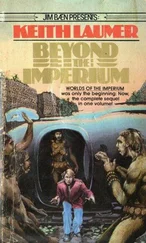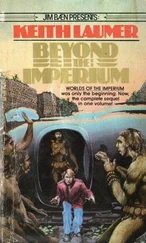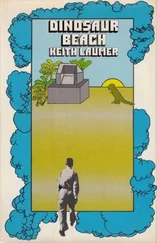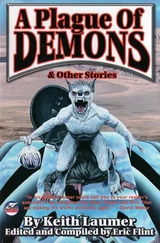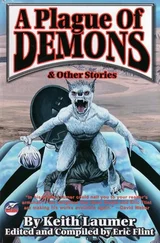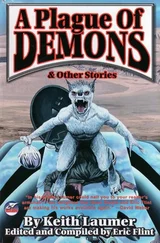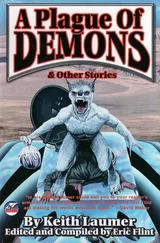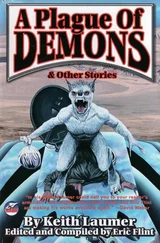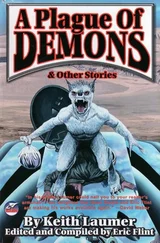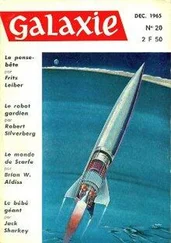“Station Monitors are aspects of the Central Coordinating Monitor,” the voice said casually. “All inquiries may be addressed directly to any local station unit.”
“You don’t volunteer much, do you?” I inquired rhetorically.
“Negative,” the voice replied solemnly.
“Can you get a message out to somebody for me?”
“Affirmative, assuming—”
“Skip the assumptions. He’s somewhere in Jacksonville, Florida—if the demons didn’t kill him just to keep in practice—and if he followed my instructions to stay in town. His name’s Joel—last name unknown, even to him. Address unknown. As of a week ago, he was crewman aboard a sub-tanker called the Excalibur , out of New Hartford. Find him, and tell him to meet me at the main branch of the YMNA in… where’s the nearest diplomatic post?”
“The British Consulate at Chicago.”
“All right. I want Joel to meet me in the lobby of the main Y in Chicago, as soon as he can get there. Do you think you can reach him with what I’ve given you?”
“Indeterminate. Telephone connections can be made with—”
There was a loud, dull-toned thump! that shook the station. The Monitor’s voice wavered and went on: “—all points on—” Another thud.
I was on my feet, watching microscopic dust particles shaken out of crevices by the impact, settling to the floor. There was another blow, more severe than the others. “What the hell was that?” I asked—yelled—but it was rhetorical.
The demons were at my door.
* * *
“All right, talk fast, Monitor,” I barked. I pulled on my new clothes, checked the gun as I talked. “Is there any other route out of here?”
“The secondary exit route leads from the point now indicated by the amber light,” the voice said imperturbably. Across the room, I saw an indicator blink on, off, on. “However,” the Monitor went on, “departure from the Station at this time is not advised. You have not yet recovered full normal function. Optimum recovery rate will be obtained by continued bed rest, controlled diet, proper medication, and minimal exertion—”
“You’re developing a nagging tone,” I told it. “Get that door open. Where does it lead?”
“The tunnel extends seventeen hundred yards on a bearing of two-one-nine debouching within a structure formerly employed for the storage of ensilage.”
“Good old Ultimax; they don’t miss a bet.” Another blow racked the station.
I buttoned up my pin-stripe weather suit, adjusted the thermostat, settled the gun under my arm.
“Monitor, I’m feeling pretty good, but you’d better give me an extra shot of vitamins to get me through the next few hours. It’s a long walk to that garage.”
“The use of massive stimulants at this time—”
“That’s the idea: massive stimulants—” There was another heavy blow against the station walls. “Hurry up; your counseling will have to wait for a more leisurely phase in my career. How about that shot?”
With much verbal clucking, the cybernetic circuits complied. I held my good arm in the place indicated, and took an old-fashioned needle injection that the Monitor assured me would keep me ticking over like a le Mans speedster for at least forty-eight hours. It started to tell me what would happen then, but I cut it off.
“I’m tougher than you think. Now, how can I contact you—or the Central Monitor—from outside?”
The level voice gave me a long triple code. “Dial on any public communication screen,” it added. “The circuits will respond to patterns inherent in your vocalization characteristics. This service is to be employed only in the event of severe emergency involving a major Ultimax program.”
I took a moment to run through a simple mnemonic exercise. Then:
“Monitor, I assume you’re mined for destruction?”
“Affirmative.”
“Wait until the last minute—until there’s a nice crowd of curious zombies and other nonexistent phenomena around; then blow. Understand?”
“Affirmative,” the voice said calmly.
I went to the narrow exit panel, paused. “Monitor, how do you feel about blasting yourself out of existence? I mean do you care?”
“Question requires value-judgment outside the scope of installed circuitry,” the voice said.
“Yours not to reason why, eh? I guess you’re lucky at that. It’s not dying that hurts—it’s living.” I took a last look back at the station. It wasn’t homey, but it had saved my life.
“So long,” I called.
There was no answer. I stepped through into the narrow corridor.
* * *
I reached the ascending staircase at the end of the mile-long, tile-walled tunnel. I fumbled, found an electro-latch of unfamiliar design. With a whining of gears, a heavy trap door lifted. I emerged into icy-cold, dusty-smelling darkness, felt my way across to a collapsing metal door. As I pushed it aside, the metal crumpled under my hand like tinfoil. I still felt weak, but I had my old grip back.
Out on the pot-holed blacktop drive under a black sky, an arctic wind slashed at me. After the days underground, the fresh air smelled good. I turned up my thermostat and started off across the open field to the north.
I had gone perhaps a hundred yards, when a sudden glare erupted into the sky from over the brow of the low ridge to my right, followed almost instantly by a tremor underfoot. A mile away, a column of red-lit smoke boiled upward.
Nearer at hand, there was a rumble from the ancient silo; I turned in time to see the door leap from its fastenings and whirl away, driven by the concussion that had traveled along the tunnel. A cloud of dust rolled across toward me. Then I heard the belated sound of the blast; a deep carrumph! that rolled across like thunder from the site of Survival Station Twelve. I threw myself flat, hearing bits of debris from the silo thump around me.
Other debris was raining around me now—new arrivals from the main blast. Clods thumped off my back. Something heavier fell with a bone-cracking thump, bounced high over me, struck again, and rolled.
All was silent now; the ruddy cloud rose higher, fading; I got to my feet and went over to the heavy object that had fallen. It was a major fragment of the body of one of the dog-things.
I walked for seven hours, following the tiny illuminated chart projected on the thumbnail-sized screen of the compass-map, and thinking of a hundred questions I could have asked the all-wise moron that called itself the Station Monitor, if I had had just a few minutes more. Probably, as soon as the demons’ cordon had revealed that I hadn’t escaped the area, they had started poking around at random in the ever-narrowing circle. It had taken their probes this long to hit upon the buried station. I could take a small measure of comfort from the fact that they hadn’t found it sooner.
Near dawn, I reached a scattering of tumble-down farm buildings from which the glow of the town was visible a mile or two to the north. Following instructions, I made my way past ranked wheat elevators, took an abandoned wheel-road that angled off to the northwest, and came to the row of tractor sheds that the Monitor had told me housed the Ultimax Transport depot.
I tried doors, finally got one open, did more groping in dusty darkness, and found the hidden switch that rolled back a section of rubbish-littered floor to reveal a heavy car-lift.
I rode it down into a wide storage garage, where eight ground cars and four helis were parked, bright with polished enamel and chromalloy. Two of the cars were ancient internal-combustion jobs, of interest only to museums. The depot, it seemed, had been in operation for some time. Another vehicle, an oversized heli, had an occupant—a desiccated corpse, dressed in the style of twenty years before. The maintenance machines were programmed to remove dirt and dents, refuel and service the vehicles—but a malfunctioning operator was beyond them.
Читать дальше

